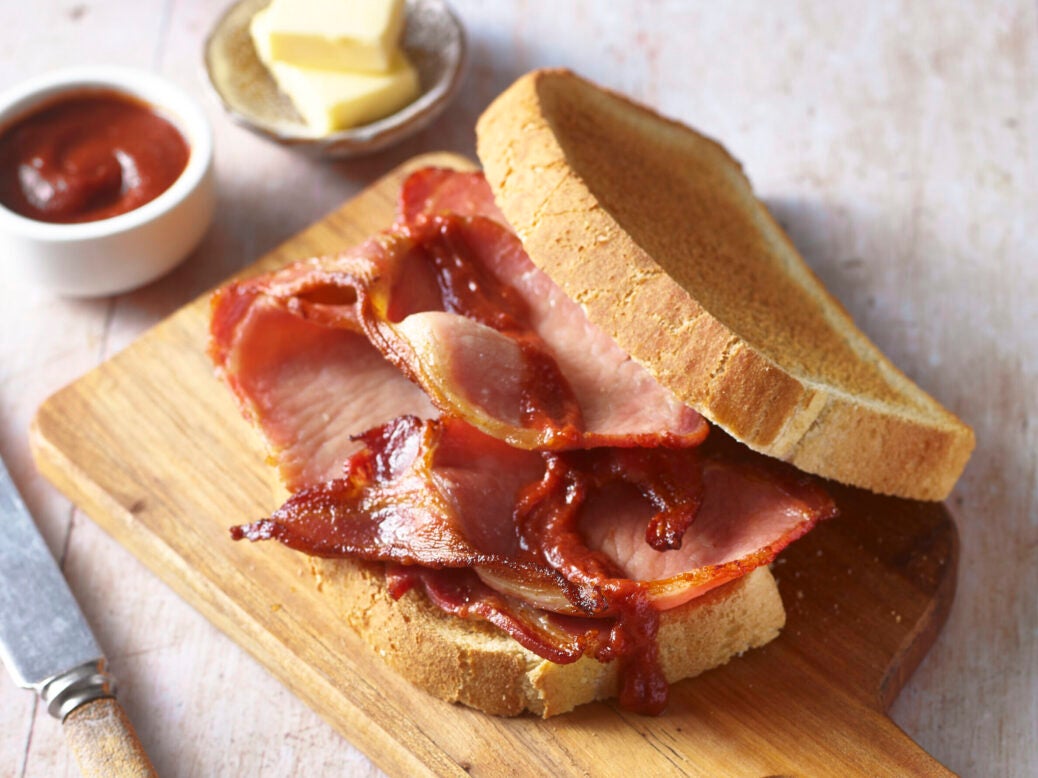
Danish Crown plans to build a UK pork facility, marking the meat processor’s first plant in the country since the sale of Tulip three years ago.
While Randers, Denmark-headquartered Danish Crown exports to the UK market, the new 30,500 square-metre site in Rochdale in north-west England will provide a physical presence for the supply of bacon and gammon.
The GBP100m (US$118.5m) investment will create 300 “specialised jobs” once the plant is fully operational. Production is due to start in the second half of next year and the site will be capable of producing 900 tonnes of bacon and gammon a week.
Group CEO Jais Valeur said: “Danish Crown has a long heritage in the UK, bringing British consumers high-quality bacon and pork products for over 135 years. This investment forms the next step in our commitment to the UK market, bringing our customers a reliable, transparent supply of high-quality bacon to help meet demand, produced to high sustainability and welfare standards.”
Danish Crown sold the Tulip business, a supplier of bacon, gammon and sausages, to US-headquartered poultry firm Pilgrim’s Pride in 2019. JBS, the Brazilian meat-packing giant, owns a majority stake in Pilgrim’s.
The Rochdale site will be powered by 100% renewable energy and will reduce food waste by using bacon offcuts to supply other products such as sausage.
Danish Crown also reported its annual results alongside the plant investment announcement. The year was characterised by “the supply crisis brought on by the war in Ukraine, Covid-19 and very high inflation”, the company said. Those factors raised operating costs by DKK1.5bn (US$207.2m), prompting an increase in prices across all products.
Group revenue rose 10% to DKK64.2bn and EBIT climbed 2.5% to DKK2.9bn. Due to an “increase in interest expenses and higher tax expenses”, net profit fell 3.5% to DKK2.2bn.
Valeur added: “We achieved stable results in a year of great challenges and a historically difficult business environment. Before we had fully recovered from Covid-19, inflation hit us far harder than anticipated, so against that background our overall result is in fact quite acceptable.”
With the inflationary impact on consumers, “private label and discount products account for a greater share of overall sales, and we do not expect that situation to change”, Valeur said.
He continued: “We have managed to raise prices by a fair deal, but not enough to balance farm finances as inflation has also weighed heavily on their operations. Sales to our important high-price markets outside Europe have been challenged by a large supply of pork worldwide, so there is a need for further price increases and a continuing tight cost focus.”
Prices were also raised in beef, with inflation and rising consumer prices causing a “slump” in demand since the summer. However, Danish Crown increased the cattle payment to farmers to DKK1.35 per kilo from DKK1.30.
“During the first nine to ten months of the financial year, we were successful in everything we did, but over the course of the summer, we started to feel the effects of the elevated inflation by way of a slump in demand,” Finn Klostermann, the CEO of Danish Crown Beef, said.
“Therefore, we now need to retain the market position we have built in recent years. We have a very strong foundation but need to remain competitive every day to prevent the competition from taking our place.”




